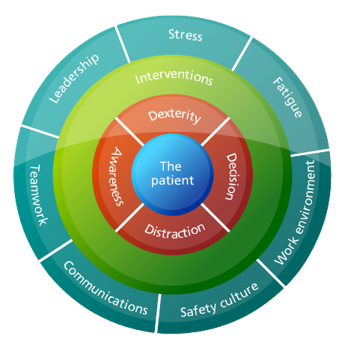
Patient safety and human factors
Patient safety is an essential part of nursing care that aims to prevent avoidable errors and patient harm. Patient safety is a feature of a healthcare system and a set of tested ways for improving care. Staff can apply these safety improvement methods to make systems of care more reliable.
The NMC Code and the RCN Principles of Nursing Practice promote patient safety. The RCN advocates ways to reduce preventable harm in health care.
We are focusing our efforts in three key areas:
Developing a culture of safety
We see attitudes and behaviours that discourage staff from learning from preventable incidents. This makes it more likely that the incident will happen again. Organisations can foster a proactive approach to patient safety.
Designing for reliability
We can make healthcare more reliable. We can do this by agreeing to ways of working and a commiting to applying that knowledge. Reliability changes our view of the world. It raises the importance of vigilance and sensitises us to the patient perspective.
Human factors as standard in education and training
Human factors are those things that affect an individual’s performance. A human factors approach is key to safer healthcare. It will become part of the core curricula of all health professionals. Training needs to be co-ordinated along interprofessional lines.
Patient safety and human factors
A human factors approach to patient safety starts with an understanding of the things that support or hinder the way people work.
Thinking about people, thinking about systems
We need better system design. The system includes the equipment, devices, medication and information systems used. It is the jobs people do and the physical environment.
Changes to the design of physical things can make a big difference to how well people work. The interfaces of devices, control panels packaging, lighting levels can all make a difference.
But it is also the way teams work together and the culture that influences how they act.
Patient safety and human factors interventions
Find out more about patient safety and human factors interventions: communication; leadership; safety culture; stress and fatigue; teamwork and work environment.

The human factors model
Related news
- Patient Safety Learning, 26 June 2019. A Blueprint for Action. This paper builds on a previous Green Paper which identified systemic causes of patient safety failure. This analysis describes the actions needed to make the patient-safe future a reality.
- Chartered Institute or Ergonomics and Human Factors, October 2018. Human factors for health and social care white paper published






